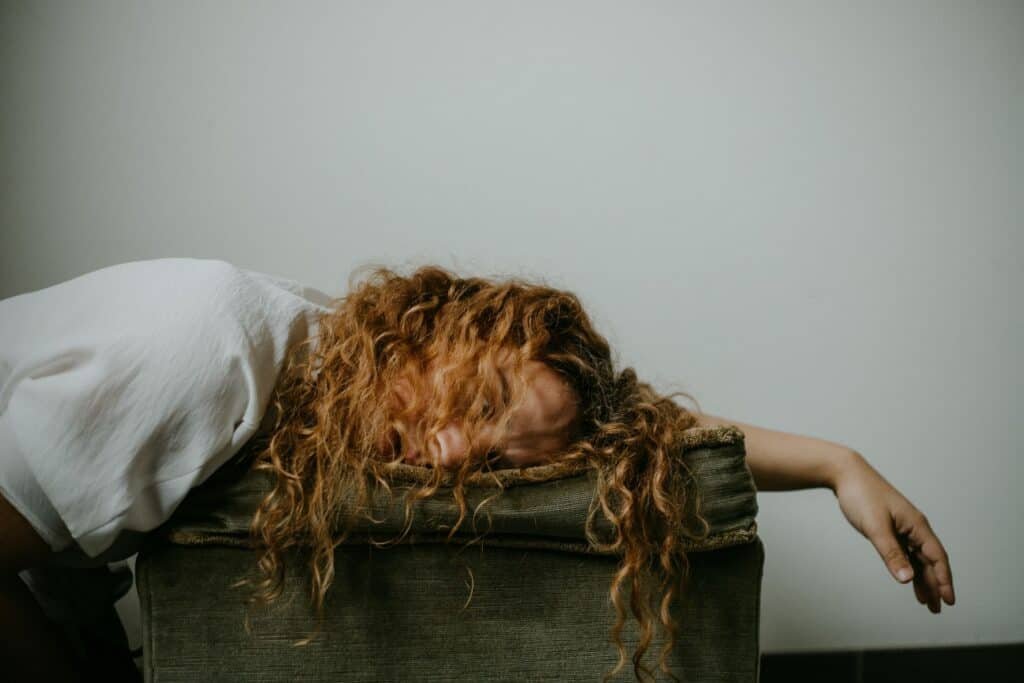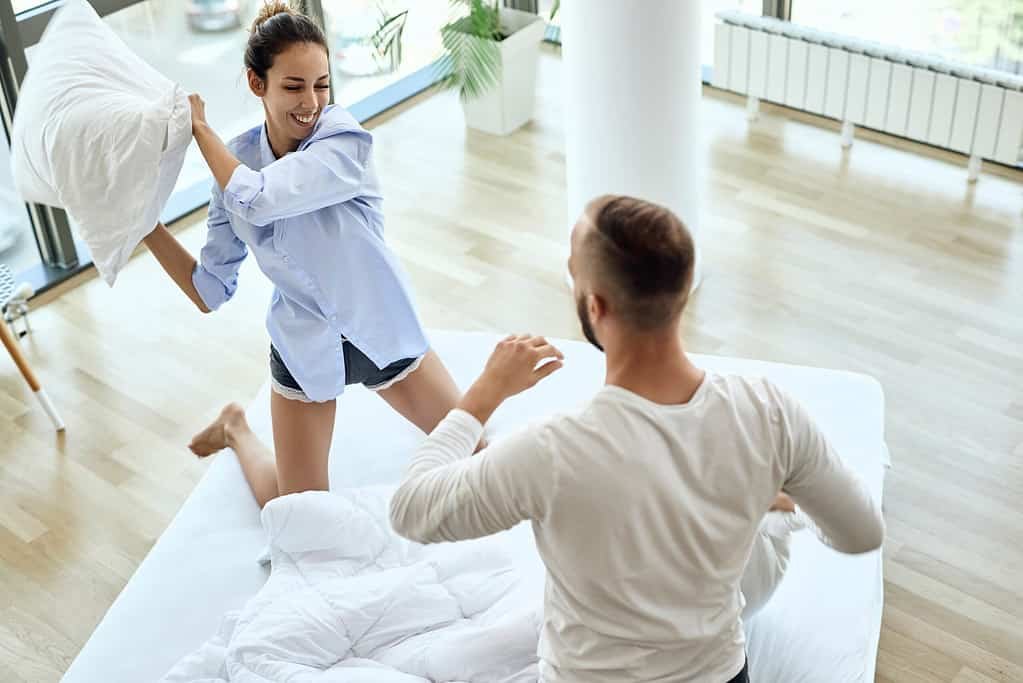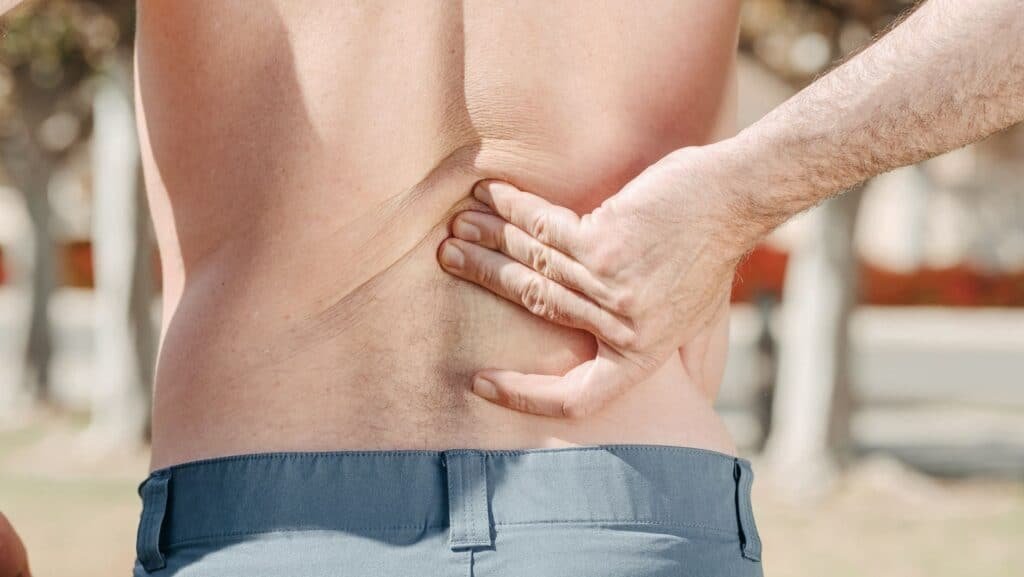8 Tips to get to Sleep Faster
Sleep is supposed to be calm, relaxing, and peaceful – but not all of us can get to sleep quickly. In today’s blog post, we look at 8 tips to get to sleep faster, giving you a better night’s sleep. If you struggle with getting to sleep, and can often lay awake with a racing mind or small icks that keep you awake at night, then this guide is for you.
8 Tips to Get to Sleep Faster
Here are 8 sleep tips to help you get into bed and into that deep sleep quicker than ever. Let’s jump right in.
1. Avoid Food and drink at least 2 hours before Sleeping – In many people’s lives, work, school, or other activities might get in the way of eating on time and having plenty of time before you sleep – which is very true. The American Journal of Clinical Nutrition suggests leaving at least 4 hours between your last meal and sleep. Not only does food and drink give you a bit of energy in each bite, but it means your body has to start digesting, which might cause discomfort but can lead to your brain working a little bit harder when trying to sleep. If you know roughly when you plan on sleeping, avoid eating or drinking for 2-4 hours before you settle down for the night.
2. Take Natural Sleeping Tablets – Unless you have a sleeping condition, such as Insomnia, you likely won’t need prescribed medication to help you sleep. Whilst this may be the case, people who struggle occasionally should look to natural ways like others on this list – or use products like Nytol.
These over-the-counter pills contain Diphenhydramine (50mg usually, which is an anti-histamine but can be used to counter the effects of Insomnia. These sleeping tablets are relatively cheap, can be used short-term and can be an easy way to drift to sleep if you’re struggling.
3. Don’t Nap Before Bedtime – Likely, the most obvious tip on this list is don’t sleep (or nap) before you go down for your long sleep at night or during the day if you’re nocturnal. Sleeping out-of-pattern can lead to several issues when you come to sleep normally again, but most of the time, you will struggle to get to sleep. Whilst tablets and other remedies are available to help with this – attempting to stay awake whilst sleepy will hopefully keep you going till you try to rest, allowing for a fast and easy drift away into that peaceful sleep you need.
4. Cool your Room before Sleeping – A slightly less-known tip for getting to sleep faster has to be pre-cooling your room. We’re not talking about major cold waves, but changing your room temperature to around 16°c-19°c(60-67° f) can help when sleeping. Although it depends on other factors of your sleep, having your room at this temperature, for the most part, allows you to go to bed feeling cool but eventually and quickly rapidly warming up to a more regular sleeping temperature. After reaching this prime heat for sleep, your body will allow you to sleep peacefully and much quicker than if you went to bed warm.
5. Avoiding Electronic Devices around 1 hour before Sleeping – Although once believed to be a myth, putting down your electronic devices and simply reading or staying away from anything digital for around an hour can significantly impact your sleeping ability. Our brains are hard-wired to take in all the data and streams of media we look at, but when you use these devices, they emit “blue light”. This invisible light doesn’t cause many issues but can lead to eye strain – but is also known to block melatonin, conveniently the hormone behind the sleep-wake cycle.
6. Use the Bedroom for Sleep and Bedroom Activities Only – When we’re younger, the bedroom becomes a separate home in your home. Still, things tend to change slightly when you grow up. If you’ve got enough room or can have your bedroom set up for sleep and other bedroom activities, and only this, then your brain will thank you. Our brains know how to link things together, even if we don’t think it does. For example, if you use your bedroom for work – this may mean that when you go to sleep, your brain is still thinking about some work instead of sleep, keeping you awake for longer and, unfortunately, leading to poorer sleep. Plus, having a bedroom purely for sleep gives you a calm and relaxing retreat should you ever need it.
7. Ensure your Bed, Mattress, Pillow, and Duvet are Comfortable – Everyone who likes their sleep knows that the main component is your bedroom furniture. Having the best mattress, pillow, or duvet, and even investing in mattress toppers, can be a significant help when sleeping – if not the best. An uncomfortable bed in any fashion can lead to bone, muscle, and mental health conditions that can be avoided with the right equipment. If you don’t know where to start, we have quite a few guides based on the best mattresses and how to choose the best mattress toppers for the most fantastic night’s sleep you’ll experience. Check them out!
8. Reduce overall Caffeine, Nicotine, and Alcohol Intake – Caffeine, Nicotine, and Alcohol are all known imposters when it comes to sleeping. Not only do these products give you energy, or at least stimulate alertness – but they can lead to other health conditions, including sleep deprivation. Cutting out all nicotine and alcohol intake, especially before you sleep, can lead to an extensive list of health benefits and improve your quality of life and sleep. Cutting out all these substances before you sleep will improve your sleeping ability, giving you the best night’s sleep possible.

Why Sleeping Quicker Can Help
Sleep is one of the most important tasks we can do in a day, and ensuring you have the right equipment and mindset to sleep is crucial. Sleeping quicker, or at least getting more sleep on any given night, can benefit your body and the next day and lead to better health in general. Not to mention that a better night’s sleep may mean less caffeine leading to untold health benefits.
Sleep is crucial to humans; unfortunately, how we’re built means we need it. Getting to sleep quicker can be challenging, but thanks to modern sciences and technology, delving deep into the materials and even how a mattress is manufactured can help you achieve a better night’s sleep. We hope this guide helped you!



